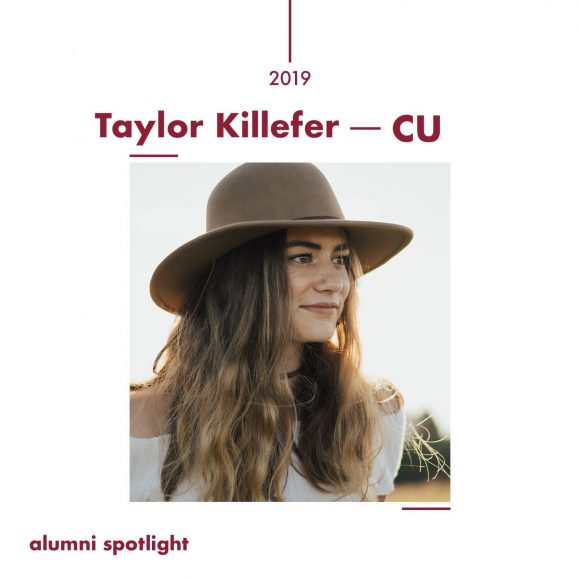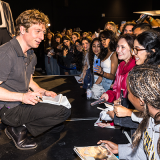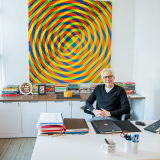Making Bold Moves Alumni Spotlight: Taylor Killefer ‘19
February 18, 2021

What was the process like to land your first industry job?
I’m an Assistant to a Motion Picture Literary Agent at CAA, so I work with her clients who are directors, writers, and producers. After applying online, it involved a few interviews and providing references that had a connection to the company. The whole process took a few months, but then I started in the mailroom! After a few months, I applied and landed the desk I have currently.
Share your career path with us – how did you get where you are now?
It involved a lot of chance, timing, and preparation but it all started with Professor Joe Rosenberg’s class, Agents and Managers. Taking his class, I learned agencies are the heart of the industry and can open up so many doors to career paths I’m interested in. Plus if you don’t exactly know what you want to do, agencies expose you to so many niches in the industry and can help you figure out where you fit into it. I was lucky because I already had a short-term job lined up at a commercial/documentary production company once I graduated. So I had a few months to figure out where I wanted to be next and start the application process. An agency was the perfect place for me for many reasons but a bonus was that so many of the jobs I was interested in for the future required 1+ year at an agency and I would get that out of the way at the same time.
What is the best advice you have received and/or what advice would you give to current students?
Make bold moves. No one in my family is in the industry in any way, so I knew I had to take some chances to get access to the jobs I wanted. A lot of jobs have an unspoken rule of needing to have someone from the industry who recommends you in order to be considered. Since I didn’t have a lot of connections, I cold-emailed some producers and made sure to get to know as many people as I could wherever I was working. Both of those tactics helped me get to CAA and also landed me some production gigs for CBS and HBO shows along the way. I’ve learned that so many opportunities opened up from a previous one – whether it was meeting someone on set, to getting an introduction to a co-worker’s friend – it’s all connected and turns into opportunities if you’re ready to take them.
What is your favorite memory from your time at Chapman and how did that impact you?
So many to choose from! One of my favorite memories was traveling to Australia to shoot a documentary with my friends! I was fortunate enough to be chosen to participate in the Sikhlens program, which sponsored a group of students to travel there with a professor. Besides getting to see the sights and experiencing all that Australia has to offer, it was so much fun to be welcomed into our documentary subjects’ lives. At one point, they threw the crew a barbecue and took us on a wildlife tour where we got to hang out with Kangaroos and penguins!
What classes or programs were found most useful for your career path?
All of Joe Rosenberg’s classes. Take them if you can! He is a wealth of knowledge in the industry and more importantly, a gem of a person who cares for the life and career path of every one of his students. Besides that, get on set as much as you can! Being on set and learning as many positions as possible will make you better at whatever you end up pursuing and give you a more full understanding of the film industry.
Any parting thoughts/insights/words?
Take advantage of the great resources and professors Dodge has to offer. My relationships with professors helped me land my first two industry jobs out of school and I’m so grateful for them. Take some time to find a mentor, whether it’s a professor, someone you worked with at an internship or on set, make time to cultivate a relationship with them and learn all you can. Even if you think it’s a long shot, I’ve found that people in the industry like to give back and are more willing to help out than I ever expected.

